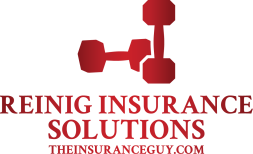Lack of Appropriate Certifications
Many personal trainers train “casually” as a side income. Whether training friends, family or others, a training certification from a reputable agency is a must. Getting your certification means you have undergone the study necessary to safely administer exercise to your clients. Should a lawsuit be filed against you, you have the backing of your certifying agency to show you acted within your professional guidelines.
Insufficient Liability Insurance
No matter how safe you are or whether you have excellent rapport with your clients, you MUST have liability insurance to protect yourself. Accidents do happen but we live in a litigious society so protect yourself whenever possible. Competitive pricing for liability insurance can be found at www.trainerinsurance.com.
Not documenting a medical history
A PAR-Q (Physical Activity Readiness Questionnaire) is designed to elicit information from your prospective client about their medical history. If you do not use this form or any other means of documenting a client’s medical history it comes down to your word against theirs in a court of law. Speaking of documentation, create a system in which you document conversations or results of exercise- especially when you progress your client. This will go a long way in court to support any claims against you should a lawsuit arise.
Copy these questions below and ask your clients to answer them. Provide an opportunity for the client to expand their answers so you have all the information necessary to design their safe exercise program.
———————————————————————————-
Common sense is your best guide in answering these few questions. Please read them carefully and check the yes or no opposite the question if it applies to you.
YES NO
- Has your doctor ever said you have heart trouble?
- Do you frequently have pains in your heart and chest?
- Do you often feel faint or have spells of severe dizziness?
- Has a doctor ever said your blood pressure was too high?
- Has your doctor ever told you that you have a bone or joint problem such as arthritis that has been aggravated by exercise, or might be made worse with exercise?
- Is there a good physical reason not mentioned here why you should not follow an activity program even if you wanted to?
- Are you over age 65 and not accustomed to vigorous exercise?
If you answered YES to one or more questions…
please consult with your physician before initiating an exercise regimen, increasing your physical activity and/or taking a fitness test.
If you answered NO to ALL questions…
you have reasonable assurance of your present suitability for an exercise test or initiating an exercise program.
———————————————————————————–
Treating Patients
Often a personal trainer is the first point of contact for someone with an injury. Unfortunately many trainers try to diagnose and treat these people without adequate training. Remember, someone with an injury must be treated by a health care professional. If a personal trainer crosses this line, he/she is acting outside the scope of their training and exposing themselves to a much higher liability risk. If a client insists the injury is not worthy of seeing a physician, then document the discussion to protect yourself from further action should that injury turn out to be more serious than expected. To further your knowledge of anatomy, biomechanics and injuries, visit www.SuccessfulTrainer.com.
Giving Nutritional Advice
This goes hand-in-hand with working within the scope of your credentials. If you are not a certified nutritionist or dietician, you cannot give dietary recommendations. Use a software program if necessary and work within the template of the program. Stepping outside your scope of practice can prove to be costly.
Unsafe Conditions
Your first responsibility to your clients is to protect them from harm. Safety issues arise from inappropriately accelerating fitness programs or a facility in disrepair or messy. Before accelerating a client’s program ask yourself if this is the best way to reach their goals or is there an alternative or intermediate step. Try not to confuse your goals with your clients’ goals. Also keep your facility free from trip, slip or other hazards and always think of their safety first.
Dating Clients
Never do it. Period. You are in a position of trust and should never take advantage of your role. Once you begin dating clients, you open yourself to sexual harassment claims.
Severing your professional relationship should be the first thing you do if you must date.

